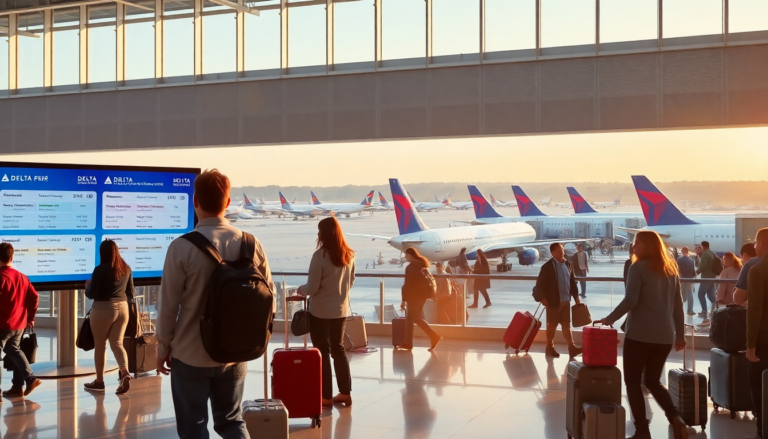Argomenti trattati
In a bold move aimed at enhancing profitability, Delta Air Lines is shaking up the traditional airfare model by introducing a dynamic pricing strategy powered by artificial intelligence. This innovative approach not only signifies a major shift in how airlines may price their tickets but also creates a more personalized experience for travelers. With this new strategy, Delta is aiming to boost its revenue while potentially transforming the way we think about airfare pricing. So, what does this mean for consumers and the airline industry as a whole?
Unveiling the AI Pricing Strategy
Delta’s cutting-edge pricing model will harness AI algorithms to sift through various data points, pinpointing the optimal fare that each passenger is willing to pay for their flight. While this might sound revolutionary, it’s worth noting that Delta has been experimenting with this AI-driven pricing system for over a year now. In fact, about three percent of their fares have already been set using this technology, and the early results have been promising. As a result, Delta has set an ambitious target: by the end of 2025, they aim to have 20 percent of their fares managed by AI. Can you imagine the impact this could have on your next flight booking?
As the airline gears up for this transition, it does raise an intriguing question: could AI eventually take over ticket pricing entirely? If so, this shift could revolutionize the passenger experience, making fares more reflective of what individual travelers are actually willing to pay rather than relying on a one-size-fits-all approach. Would you be willing to pay more for a ticket if it meant a better chance of securing your preferred flight?
Consumer Concerns and Regulatory Compliance
Despite the promising results, Delta’s innovative strategy hasn’t been without its critics. Some consumer advocacy groups are raising red flags, suggesting that this pricing model could manipulate passenger behavior by exploiting psychological pricing tactics. There’s a growing concern that such strategies may lead to perceptions of unfairness, especially if travelers feel they’re being charged unfairly based on their behavior or profile. Have you ever felt like you were being charged more for a flight simply because you were searching too often?
However, Delta is keen to reassure its customers that their AI-driven pricing will comply with legal regulations. For instance, U.S. airlines are forbidden from adjusting ticket prices based on sensitive factors like gender or ethnicity. This regulatory framework is designed to protect consumers from discriminatory pricing practices and ensure a fair market environment. Does this legal backing make you feel more comfortable with the changes?
The Future of Airline Pricing
As Delta Air Lines pushes ahead with its AI pricing strategy, it’s setting a precedent that may very well influence the broader airline industry. The potential for personalized pricing could lead to a shift in how travelers approach booking flights. You might find yourself adapting your expectations and strategies as you search for the best deals. Are you ready for a new way to think about airfare?
In the coming years, stakeholders across the airline industry will be keeping a close eye on the effectiveness of Delta’s AI-driven pricing model. The burning question remains: will the benefits of personalized pricing outweigh the concerns raised by consumers? Only time will tell how this innovative approach will reshape the landscape of air travel, but one thing is certain—change is on the horizon. Are you prepared to embrace it?

